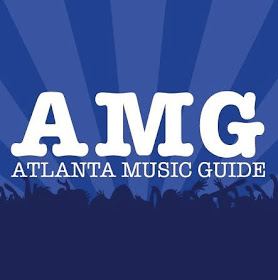 jENNiNGS
jENNiNGS
Take It or Leave
Emerging Artists Music
By Al Kaufman
Singer/songwriter/pianist Mary Jennings is pretentious. A singer cannot use such a capitally-challenged moniker and not be thought so. She only enhances that perception on her live album, Take It or Leave. She includes an intro on every song because, you know, it’s like, important that you know where she was coming from when she wrote the song. And when she says “thank you” at the end of every song, she sounds like a teacher talking to her class of first graders.
What Jennings can do is sing and play piano. While her strong and sensual voice has been compared to flavor of the month Adele, it is most similar to that of ’90s pop star Paula Cole, as it goes from rich and honeyed to high-pitched and mighty in a matter of seconds. Her piano twinkles along and her band compliments her well. Her songs are not instantly accessible, but they borrow into the recesses of the listener’s brain and hang around for a while.
Where Jennings has another problem is her lyrics. Many people first delving into the world of writing believe that because something is personal, it is therefore good. It is art. But the art is not in the story itself, it is in the way the story is told. To just tell a personal story is not art, it is, if told to a large group, merely exhibitionism. Jennings, who has been doing this for well over 10 years now, should know this.
Jennings introduces “Move“(which originally appeared on her 2011 album, Collapse, Collide) by saying, “I think every songwriter has that song they know they’re going to write, like this is why they became a musician.” It’s a song about the death of her mother. It took her 10 years to write. She had written many songs about her mother’s life, but not about her death. It is obviously a deeply personal song for Jennings, but the gist of it is that she wants her mother to move and open her eyes. “This can’t be happening, not to her and not to me,” she cries. Yes, it’s sort of primal in its way, but it doesn’t say anything unique. For a song that is supposed to be the one she was born to write, more is expected. She shows some lyrical promise in “Falling Higher.” “You make me smile when I’m sad” (beat) “And I hate that,” but too much of this album is Jennings singing about typical teenage girl emotions and acting like she is the only person in the world who ever felt this way.
Jennings ends the album with the title track, a new song. It’s her obvious way of telling people to love her as she is. That’s too bad. She could be a lot better. With her voice and her piano she could be great, as long as she gets out of her own way.
jENNiNGS plays Smith’s Olde Bar on Tuesday, April 17. Tickets will be available at the door.

You call yourself a critic? I mean, really???
An artist is pretentious because of how she spells her stage name??? And she sounds like a teacher talking to first grade students because she’s sincere in how she interacts with her audience?? Are you kidding me? You sound like a first grader yourself, resorting to petty and baseless personal attacks against an artist and calling it a ‘review’.
This isn’t a review. It’s a hatchet job. And what’s worse, you don’t even make an effort to veil your obvious contempt for this musician as a person, which just makes you come off sounding completely unprofessional. I hope this isn’t your day job. If so, that’s too bad. Because you could be a lot better.
Wow…. agreed. Talk about the music…